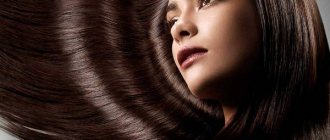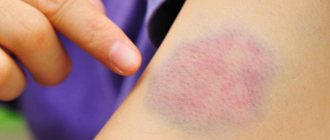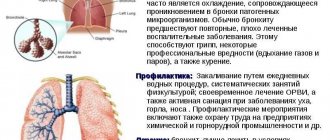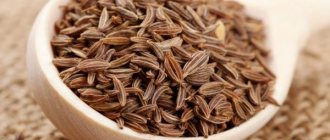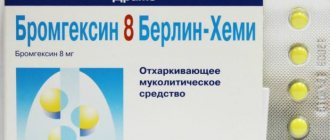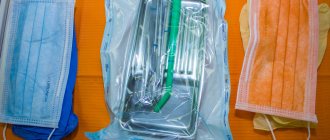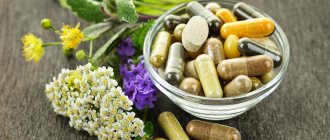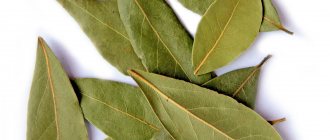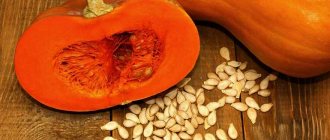What is psoriasis
The disease is inflammatory in nature, but not contagious.
Often, inflammation on the head is only the initial stage of the development of more serious forms of psoriasis. Inflammation affects the skin along the hair growth contour. In psoriasis, new cells grow on dead ones.
As a result, crusts and tubercles appear on the head. These phenomena do not interfere with hair growth, but they bother adults and children from an aesthetic point of view.
Seborrheic psoriasis affects:
- back of the head;
- earlobes and surrounding skin;
- upper forehead;
- parting.
Signs and first symptoms
You should definitely know how psoriasis begins in order to promptly consult a doctor if you suspect that you are sick. First, small spots, red or pink, appear on the head. Sometimes they look like a simple rash. They have a keratinized film on them, which is better not to touch so that the growths do not harden. There are mild and severe forms of the disease.
At first, the manifestations of psoriasis are invisible to a person. People usually turn to a specialist when spots, scales, and the skin begins to itch on their head.
Gradually, itching and inflammation with psoriasis will increase. Soon, dense crusts resembling flakes appear on the skin.
If psoriasis is not treated, the keratinized plates will cover the entire head and the disease will spread to other parts of the body.
Causes
First of all, you need to understand what causes psoriasis. The trigger mechanism is always a violation of metabolic processes. Skin cells begin to grow and divide in psoriasis five times faster than in the normal state of the body. The dead ones do not have time to be removed, new ones grow right on them. This leads to the appearance of peeling and plaques that grow together into spots. Psoriasis can develop due to:
- frequent intense mechanical impacts on the scalp (rough use of a comb, for example);
- irritating effects of hair care cosmetics when selected incorrectly;
- allergic reactions;
- too dry scalp, dandruff;
- stress, depression;
- infections;
- hormonal imbalances;
- improper diet;
- genetic predisposition.
What does psoriasis look like on the scalp?
Each stage is characterized by its own skin lesions. At first it peels a little and itches. Gradually, the previously dandruff-like change turns into large, thick plaques. Later they become like white flakes. They are replaced by large scaly red plaques, the skin becomes vulnerable to injury. The best way to see what psoriasis looks like on the scalp is in the photo.
Prevention of scalp psoriasis
In order to prevent the appearance of scalp psoriasis, it is useful to:
- Avoid overheating and sunburn.
- Diagnose and treat any diseases in a timely manner.
- Wash and comb your hair with care.
- Periodically wash your hair with therapeutic and prophylactic shampoos.
- Eat a healthy and nutritious diet.
- Protect yourself from negative emotions, avoiding stressful conditions.
- Select cosmetics for scalp and hair care according to their type.
Although scalp psoriasis is a serious condition, treatment can be quick and painless. The main thing is to adhere to the recommendations of doctors and closely monitor your health, preventing any pathological manifestations.
Causes of Psoriatic Damage
Doctors have still not come to a consensus about what causes psoriasis. It is reliably known that the appearance of the disease is provoked by a violation of metabolic processes. The development mechanism looks like this:
- In normal condition, skin cells are renewed within 25 days.
- Squamous lichen shortens this time.
- As a result, the cycle of cell division and renewal occurs within a few days.
- Excessive growth of the upper layer of the epidermis occurs.
- Old cells do not have time to exfoliate, inflammation begins, and red spots covered with scales form on the skin.
Many doctors believe that psoriasis is a consequence of problems with the immune system that are transmitted at the genetic level. Some people have an innate tendency to intensive renewal of the epidermis, which causes the layering of young cells on the not yet dead skin particles and provokes the formation of plaques.
There is a widespread theory that disruptions in the immune system that lead to psoriasis are acquired in nature and manifest themselves against the background of excessive stress, infectious diseases, and sudden climate change.
Causes of psoriasis on the head
This is a chronic non-contagious dermatological process that develops in individuals with a hereditary predisposition. The causes of psoriasis on the scalp and the mechanism of its development are not fully understood. But it has been established that the process develops against the background of metabolic and immune disorders. The body loses control over the division of skin epithelial cells: they begin to divide much faster. Signs of keratinization also quickly appear, manifested in the form of peeling. At the same time, inflammatory processes develop in the skin.
The main cause of scalp psoriasis is a hereditary predisposition. Scientists are trying to identify the genes responsible for transmitting the disease from generation to generation. Individual altered areas related to different genes that are found in patients and their close relatives have already been identified.
But a person who has a genetic predisposition does not necessarily get sick. External and internal predisposing factors are no less important. Psoriasis of the scalp begins in genetically predisposed individuals due to exposure to the following factors:
- mechanical irritation of the skin (with a hair brush with hard teeth; injury to small wounds and crusts that appear with seborrhea, etc.);
- cold exposure;
- past infectious diseases; often after streptococcal impetigo - purulent rashes mainly on the skin of the face; develops in children and becomes the impetus for the development of an autoimmune process;
- chronic stress and high loads;
- frequent smoking, alcohol abuse;
- diet violations - irregular, unhealthy dry food, excessive consumption of high-calorie foods and spicy seasonings;
- for hormonal disorders that affect the condition of the sebaceous glands of the skin - obesity, imbalance of sex hormones, diabetes, diseases of the thyroid gland, pituitary gland, hypothalamus;
- for diseases of the liver and kidneys with impaired function of these organs; neutralization of toxins occurs in the liver, and through the kidneys they are eliminated from the body; intoxication can become a trigger point in the development of the disease.
Under the influence of one or several factors, the interaction of the organism with the environment is disrupted. Protein, fat and carbohydrate metabolism is disrupted, which causes acceleration of metabolic processes in the skin and its peeling.
Psoriasis of any localization can spread throughout the body, so do not delay treatment.
See how easily the disease can be cured in 10-12 sessions.
Changes in the immune system manifest themselves in the form of increased sensitivity of the skin to any external influences (including combing or frequent hair coloring). In response to such influences, antibodies are produced to one’s own cells, provoking the occurrence of an autoimmune inflammatory process. The reasons why inflammation begins are not yet fully understood. This is one of the priority tasks of medicine in the treatment of psoriasis.
Symptoms
At the initial stage, the symptoms of psoriasis are mild, so a person rarely pays attention to them. There is flaking on the scalp, which can easily be confused with regular dandruff.
- A little later, the progressive stage begins, which causes a rash that gradually increases in size and transforms into pink or red spots. They are covered with a thin keratinized film. If it is torn off, the plaques become coarser and thicken.
- The process is accompanied by inflammation and severe itching. It is important not to scratch the lesions so as not to provoke the appearance of weeping wounds and abrasions.
- Any careless movement when combing and washing your hair can damage the plaques and worsen the condition.
- If treatment is not started in time, the itching intensifies, new lumps appear, which gradually cover the entire skin of the scalp.
The third, stationary stage, excludes the appearance of new rashes. The plaques present are pronounced and cause severe discomfort. At the fourth stage, the symptoms of psoriasis on the scalp subside. The spots become less saturated, the swelling of the skin subsides, and the itching calms down. The plaques gradually disappear, leaving behind discolored areas of the skin.
Diagnosis and treatment
At the first symptoms of skin rashes, you should consult a dermatologist. The specialist will conduct an examination and make a diagnosis based on the data obtained.
The doctor must listen carefully to the patient's complaints and conduct a visual examination of the skin. After this, it is necessary to scrape off the scales from the plaques and send them to the laboratory for examination. A skin biopsy should also be performed for histology.
To remove the progressive symptoms of psoriasis, complex therapy is required. It includes:
- drug treatment;
- use of topical ointments;
- physiotherapy;
- shampoos and sprays that improve skin condition.
Along with traditional methods of struggle, doctors recommend the use of folk remedies for psoriasis on the scalp. This approach allows you to quickly eliminate itching, flaking, calm the inflammatory process and permanently cleanse the skin of psoriatic plaques.
Effective treatment
Therapeutic measures aimed at getting rid of psoriasis are characterized by complexity, involving both external and internal effects on the disease. The main remedies for psoriasis on the head are:
Medications
In the presence of moderate or severe forms of the disease, psoriasis is treated with medication:
- Reamberin . Presented in the form of a solution intended for drip administration. Due to the antihypoxic and restorative effect, the main effect is aimed at relieving signs of intoxication. The main component of the drug is succinic acid, known for its antioxidant properties, as well as the ability to saturate cells with oxygen.
- Methotrexate . The medicine is used only if it is necessary to cure severe forms of the disease. The action is aimed at slowing down the process of cell division. Administration is carried out intravenously or orally. Due to the presence of a large number of adverse reactions, the drug is used only after medical consultation.
- Diprospan . Belongs to the group of hormonal drugs. Due to many contraindications, it is prescribed for severe forms of psoriasis.
Physiotherapy
Physiotherapy has proven itself in the treatment of pilaris psoriasis. Today, the most proven and highly effective methods of physiotherapy are:
a) Phototherapy
It is a method of suppressing the signs of psoriasis using ultraviolet rays. PUVA therapy, which involves exposure to ultraviolet radiation, has proven itself most positively. Irradiation is carried out after taking a photosensitizer, a drug that increases the sensitivity of the skin to light. After taking it, it becomes possible for ultraviolet radiation to penetrate into the deep layers of the skin, which makes it possible to effectively treat the disease.
b) Cryotherapy
The method is characterized by short-term exposure to cold on the affected skin areas of the head. The essence of the procedure is as follows:
- the patient is placed in a special device that looks like a chamber and is called a cryosauna;
- Cold gas with a temperature of up to -130 degrees is introduced into the chamber. The result is instant cooling of the skin, as well as stimulation of natural protective processes;
- The patient remains in this position for a couple of minutes.
The effect of cryotherapy is achieved after completing a full course of 30 sessions. Up to 4 procedures can be performed daily to help eliminate itching, pain, and inflammation.
c) Laser therapy
In this case, a laser is used. Its advantage lies in its therapeutic effect on affected areas of the skin without affecting healthy areas. The procedures are painless and harmless: this is manifested in the absence of scars and subsequent pigmentation after treatment.
Creams and ointments
To get rid of psoriasis using local medications, it is advisable to use:
a) Creams
The following compositions have proven themselves well:
- Picladol . The high effectiveness of the cream is achieved only with complex treatment of the disease. It has a strong anti-inflammatory and softening effect. Promotes rapid regeneration of the skin. The remedy is used until the regressing stage of the disease.
- Tsinocap . The main component, zinc pyrithione, has an antibacterial effect, causing the death of bacteria.
- Psoril . It is distinguished by a rich herbal composition with a rich content of vitamins, thanks to which the scalp is disinfected. It also has a wound-healing and antifungal effect.
Also on the topic: How to cure psoriasis?
b) Ointments
Experts recommend using:
- Naftaderm . The ointment is known to effectively suppress itchy sensations on the scalp. It is characterized by regenerating, analgesic, antiseptic and anti-inflammatory effects. The main component is naftalan oil, which gives the preparation a pronounced oil smell. The method of application is to lightly apply the ointment to the skin under the hair without rubbing. The treatment course is 5 weeks.
- Salicylic ointment. The basis of the drug is the acid of the same name, characterized by the absence of provoking adverse reactions.
- Daivonex . The ointment has a viscous consistency of a transparent color. The main substance is calcipotriol, which is a synthetic analogue of vitamin D.
A large list of medicinal ointments is in our review “Ointments for Psoriasis”.
Lotions
Various lotions are also effective against psoriasis:
- Belosalik . Belongs to a group of hormonal agents, which includes betamethasone and salicylic acid. In combination with each other, these substances have anti-inflammatory, antihistamine, antiseptic effects, accompanied by the relief of itching sensations. The ease of applying the lotion is due to the presence of a special nozzle for spraying the affected areas of the head.
- Diprosalik . Has a similar composition. Using a sprayer, apply with light rubbing. Effective for relieving symptoms and inflammation.
- Calamine . The medicine has a natural composition containing zinc and calamine. The result is an anti-inflammatory and cooling effect.
Detailed review of “Lotions for Psoriasis”.
Shampoos
Shampoos for the treatment of psoriasis on the scalp and hair are divided into several categories:
a) Tar
The compositions necessarily contain tar from birch, willow and coniferous trees in the form of pine and juniper. These components contribute to:
- removal of excess sebaceous manifestations;
- skin cleansing of dead cells;
- washing off ointments with a greasy consistency;
- relieving inflammation and itching;
- suppression of the growth of fungal microorganisms.
The most effective shampoos: “Friderm Tar”, “Psorilom”, “Algopix”. They have a sedative effect, coping with itchy sensations on the skin.
b) Antifungal
A powerful antifungal effect is achieved by increasing the itching sensation at the beginning of using shampoos. The active substance of this group is ketoconazole. Nizoral is considered the most effective antifungal shampoo:
- sanitizes fungal lesions;
- soothes the skin;
- heals affected areas.
The shampoo is suitable to fight all types of fungal infections of the scalp.
c) Medicinal
The medicinal category of shampoos is characterized by the presence of:
- salicylic acid;
- urea;
- ichthyol;
- zinc and others.
They have a pronounced antibacterial and moisturizing effect. Medicinal shampoos are presented in a large assortment. The most popular is “Skin Cap”, suitable for various types of fungal skin lesions. Skin Cap is also sold in aerosol form. Apply externally by spraying onto hair at a distance of 15 cm.
Compositions, prices, action and review of the most effective shampoos for psoriasis in a separate material.
Folk remedies
To remove the manifestations of psoriasis, traditional medicine recipes are often used. Let's pay attention to the most accessible ones for use at home:
Also on the topic: How to treat palmoplantar psoriasis?
a) Oils:
- Essential . Commonly used essential essences are: ylang-ylang, oregano, myrrh, sandalwood, geranium. Sea buckthorn oil is no less effective in treating the disease. Has a calming effect, disinfecting and regenerating the skin.
- Linen . Flax seed oil helps relieve inflammation, relieve swelling, and promote rapid healing of affected areas of the head.
Head masks are made from the mentioned oils:
Recipe #1:
- burdock oil in the amount of a couple of spoons is mixed with 5 drops of ylang-ylang and chamomile;
- the mixture is heated and rubbed into the scalp;
- the mask is left for 40 minutes, after which it is washed off with shampoo.
A positive result is manifested in accelerated healing of the skin, improvement of the hair structure, and prevention of hair loss.
Recipe #2:
- a teaspoon of grape seed oil is mixed with a tablespoon of grapefruit pulp;
- add 10 drops of lemon essential essence;
- the oil mixture is rubbed into the affected areas and left for half an hour;
- After the required time has passed, the mask is washed off.
b) Tar soap
The particular popularity of this soap is due to the following properties:
- improved blood circulation;
- destruction of pathogenic bacteria;
- disinfection of affected areas;
- relieving painful and itchy sensations.
Tar soap can have a drying effect. This must be taken into account in patients with excessive dry scalp. You should also be prepared for the fact that the soap has a rather pungent odor.
c) Onion
Recipe for the treatment of psoriasis: chop the onion, wrap it in gauze and apply it to the affected areas of the skin for a few minutes. Afterwards, the entire head should be washed with cool water, and a medicinal ointment should be applied to the location of the plaques.
More good recipes in the article “Treatment of psoriasis with folk remedies.”
Diet
One of the main causes of psoriasis is allergic reactions. During the treatment period, it is important to adhere to a certain diet:
- exclusion of alcoholic beverages from the diet;
- the presence of fractional nutrition, which involves eating in small portions and taking a break of three hours;
- minimizing salt intake;
- refusal of smoked meats and pickles;
- exclusion from the diet of artificial additives in the form of dyes and preservatives;
- frequent consumption of fresh vegetable and fruit products;
- daily consumption of fermented milk products.
Read more about proper nutrition in the section “Diet for psoriasis.”
Psoriasis of the scalp before and after treatment
Treatment with medicinal plants
To get rid of rashes you need to treat according to the scheme. True, in each specific clinical case the treatment process has its own differences. Doctors recommend using medications made from zinc, tar, and sulfur. Traditional medicine and herbs provide considerable effectiveness of therapy.
Golden mustache
Initially, the recipes relieve itching, then reduce inflammation and eliminate the manifestations of the disease. Recipes based on the golden mustache have performed well. The juice extracted from the crushed leaves of this plant is used to treat damaged scalp.
Also, raw materials can be used to make medicinal decoctions and infusions recommended by folk remedies. Treating them after washing your hair helps with psoriasis. To prepare, take a couple of whiskers or several leaves, crush the raw material, put it in a thermos and fill it with hot water for an hour. Then the resulting concentrated infusion is diluted with pre-boiled water.
For the seborrheic form of the disease, an ointment prepared from the same plant gives a good effect. For the composition, take juice squeezed out of the golden mustache in the amount of one tablespoon, three drops of tea tree oil, a couple of drops of B vitamin, and one teaspoon of alcohol chamber. The resulting product is used to treat the skin.
To create a medicine, the use of which usually has an excellent effect, aloe juice is taken. This raw material has a pronounced anti-inflammatory effect.
To make medicine:
- The leaves are taken and ground.
- Next, the resulting mass is placed in gauze and squeezed out.
- The juice obtained during processing is mixed with alcoholic camphor in a combination of 1 tablespoon to 1 teaspoon.
- Place birch tar into the resulting mixture, then break it and pour a raw chicken egg into a separate bowl, beat it and also pour it into the mixture.
- After thorough mixing, the product is ready for use.
- It is applied in a thin layer to the skin, put on a sealed cellophane cap and left in place for up to half an hour.
- At the end of the procedure, you need to wash your hair with a special hypoallergenic shampoo, and then rinse your hair and skin with a herbal decoction.
If you need to treat seborrhea and get rid of psoriasis, therapeutic muds have good effectiveness. They can be purchased at a pharmacy or undergo treatment at a resort.
Mud therapy has side effects, so you should consult your doctor about the possibility of such therapy. The main thing is that you should not treat with mud for a number of heart diseases.
They are indicated in the instructions for the finished mud.
The mask recommended by folk remedies is made like this:
- take a tablespoon of the product;
- add one hundred milliliters of chamomile decoction;
- drip a couple of drops of vitamin B;
- mix everything thoroughly and use it to treat the affected areas of the head;
- You need to keep the ointment for 15-20 minutes, after which you should rinse it off with plenty of liquid.
Elecampane root in the form of a decoction and white clay have proven themselves to be good for this problem. The decoction is very easy to prepare. The root must be finely chopped, placed in a thermos and filled with 250-300 ml of boiling water. Infusion time is about 3 hours. After this, the remains of the plant are eliminated by straining the decoction.
Next, take a full tablespoon of clay, bring it to a slightly creamy state with the prepared decoction, drop a teaspoon of lemon juice and a couple of drops of the already familiar B vitamin into the resulting product. Use it after thorough mixing, applying it to the damaged areas for at least 10 minutes.
Decoctions from some plants have also proven to work well - nettle herbs, calendula, chamomile. These products remove inflammatory manifestations, relieve redness, and improve skin nutrition. Due to the action of the herb, peeling and itching disappear, the skin is cleansed. For greater effectiveness of treatment, you must follow a diet. Such complex treatment always brings results!
Treatment of psoriasis with folk remedies helps to get rid of unbearable itching. The golden mustache copes especially well with this problem.
The juice from the leaves and tendrils of this medicinal plant is used to lubricate wounds on the head, and the decoction is used to rinse the hair after washing the hair. In order to prepare a medicinal infusion, you need to take 1-2 tendrils of the plant, chop them, put them in a thermos, add hot water (not boiling water), and leave for 30-60 minutes.
The finished concentrate is diluted with boiled water and then used for rinsing. For seborrheic psoriasis, an ointment made from golden mustache juice (a tablespoon), tea tree essential oil (3 drops), vitamin B (2-3 drops), and camphor alcohol (a teaspoon) helps very well.
This product is used to lubricate wounds.
If there are purulent wounds on the head, then it is undesirable to use folk remedies. In this case, anti-inflammatory pharmaceutical ointments are used along with antibiotics prescribed by a doctor.
You can treat scaly lichen with birch tar, which is sold in a pharmacy. A decoction of birch buds helps get rid of itching very well.
Pour boiling water (500 ml) over a heaped tablespoon of birch buds and let it brew for 30 minutes. The decoction is diluted with water and used for washing hair.
To rinse long hair, the amount of components is increased by 2-3 times. Birch leaves contain tar, so they can be used to treat this disease.
https://www.youtube.com/watch?v=pT75kAvX_48
Take 1-2 tablespoons of crushed leaves per glass of boiling water, leave for about an hour, after which the broth is filtered. This product is used to rinse hair.
This disease cannot be ignored because it will not go away on its own. It is possible to get rid of psoriasis on the scalp using traditional or alternative medicine. Before using this or that method of treatment, be sure to consult your doctor. As a rule, complex therapy is used. It is worth talking about the main treatment options for psoriasis.
Folk remedies
Try the following recipes for psoriasis at home:
- Oil compresses. Mix olive oil and peanut oil in equal quantities. It must be heated and spread with massage movements over the skin. Cover the top with plastic, wrap with a towel and leave overnight. You can wash off the composition with apple cider vinegar.
- Onion compress. Pass a few onions through a meat grinder, wet your hair, and rub the pulp into your skin. Cover with cellophane. After a quarter of an hour, wash off with tar soap.
- Golden mustache. Prepare a decoction of a plant leaf and a liter of water, rinse your hair after each wash.
- Bone marrow. Boil 0.25 kg in water. Strain the broth, add 1 tsp. alcohol Dip a towel into the bone marrow decoction, wrap it around your wet head and hold it until it cools completely. Repeat several times before going to bed. In the morning, wash your hair.
- Egg ointment. Pour vinegar essence into a shelled egg in a glass container and close the lid tightly. Leave it for a day. Then mash the egg together with the shell, add a tablespoon of pork fat. Apply the resulting ointment to the areas of skin affected by psoriasis for an hour. Then remove the composition with a soft cloth and lubricate the crusts with baby cream.
Shampoos
Medicinal products with active ingredients to eliminate the symptoms of psoriasis on the skin:
- "Skin Cap". Contains zinc. Removes inflammation and itching from the skin
- "Lybriderm zinc". Shampoo based on pyrithione and allantoin. Heals and moisturizes the skin.
- Friederm Zinc. Relieves symptoms of psoriasis, improves hair condition. Promotes skin regeneration.
- "Psoril." Shampoo with salicylic acid, zinc pyrithione, vitamins, plant extracts.
Tar shampoos effective in the fight against psoriasis:
- "Friderm tar." It has an antifungal effect and normalizes the process of sebum production.
- Grandmother Agafya’s “Tar” shampoo. The base is birch tar. Removes skin irritation.
- "Algopix". Consists of juniper tar. Heals wounds, treats inflammation.
- "Tana." Homeopathic shampoo with birch tar. Kills bacteria, normalizes the water-salt balance of the skin, improves blood circulation.
Antifungal shampoos used to treat psoriasis:
- "Nizoral." Treats itching and flaking of the skin.
- "Keto Plus" It will help moisturize the skin, relieve irritation, and remove crusts. The course of treatment is a month.
- "Sulsena". Regulates the process of skin cell regeneration, as a result of which dead cells exfoliate faster. Normalizes tissue metabolic processes.
Medicines
Manufacturers offer a lot of drugs for the treatment of psoriasis. Among them there are products for internal and external use. The best result for psoriasis on the head will be achieved by combining these and other medications. Oral medications are prescribed exclusively by a dermatologist after determining the severity of the disease. Compositions for external skin treatment will also help cure psoriasis.
Traditional recipes for psoriasis
Before you start treating psoriasis at home, adjust your diet and lifestyle. All this will improve the general condition of the dermis and hair. Alternate work with rest, give up bad habits, avoid stress, take vitamins.
From the menu, exclude smoked meats, chocolate, pickled, spicy, fried foods, and in the acute phase, also meat, red vegetables, fruits, soda, sugar, eggs.
For patients suffering from scalp psoriasis, it is especially important to wash their hair properly. Soda is considered one of the effective remedies. You can mix it with a small amount of baby shampoo or plain water. Just combine the components not in a metal container, otherwise the soda will oxidize.
Gently rub this product into your scalp and then rinse your hair. Add fine sea salt, semolina, olive oil, ground natural coffee to the sodium bicarbonate powder - you will get a peeling.
Soda baths will be useful for skin and hair with psoriasis. For 1 procedure you will need a pack of powder. Dissolve it in a bath of warm water. Sit down and tilt your head back, letting your hair fall back. You can close your ears. Sit in this position for about 30 minutes. Do the procedures at night (no more than 3 in a row), and in the morning lubricate the affected areas with vinegar diluted with water.
If skin itching has spread throughout the body, salt bathing will help. For 15–20 minutes, take a bath in warm water with 1 kilogram of sea salt dissolved. After this, be sure to rinse off in the shower. You can add iodine (10 milliliters), pine extract (100 milliliters), valerian tincture (75 milliliters) to sea salt. Frequency: every 3-4 days, but only after consulting a doctor.
When treating scalp psoriasis, rub fine sea salt into the dermis. After an hour, rinse your hair with clean water. In addition, carefully observe other personal hygiene rules. Choose a comb that does not scratch the scalp, and do not temporarily dry your hair with a hairdryer. Use several home remedies of different spectrum of action (external, internal).
Drugs for the treatment of psoriasis must be combined with each other.
Ointments
- From solid oil with Vaseline . Take 300 grams of both components. Add egg whites to them, as well as 20 grams of honey and dried, crushed celandine. Mix and apply to areas of the body affected by psoriasis, in the hair area for a month. An important nuance: solid oil must be medicinal or fatty, without impurities or additives.
- With egg and pork fat . Pour vinegar into a 0.2 liter jar and place a chicken egg in it. After a day, add 20 grams of pork fat and mix gently. Apply over flaky areas of the body or hair area for 1-2 hours. Remove any leftovers and lubricate the same areas with baby cream.
- Honey-egg . Combine 20 grams of a sweet product, chicken egg white and 2 teaspoons of baby shampoo. Apply to stains and wash off after 10–15 minutes.
- Tar-garlic . Soap containing natural tar treats dandruff on the hair and regulates the functioning of the sebaceous glands. It will also help with psoriasis. Grate the block and take 2 tablespoons of the finished chips. Add the same amount of fresh garlic pulp. Pour the mixture with a glass of water (0.25 liters), put on fire. When most of the liquid has evaporated, the ointment will be ready. Let it cool and apply to affected areas along the hairline or all over the body.
- With celandine . Take the alcoholic extract of the herb (2 parts), add linseed oil (4 parts) and Vaseline (1 part). Mix thoroughly and distribute to affected areas once a day.
- Ash based . Burn the rosehip branches and oak bark. Combine ash with Vaseline in a 1:1 ratio and smear the affected areas shortly before bed. There is another option. Take 25 grams of ash and add to it 100 grams of medical grease, egg white and 10 grams of celandine. Let it brew for 2 weeks and use for psoriasis three times a day.
- Wormwood . Grind the dry herb into powder (you can buy it at the pharmacy). Mix ground wormwood with melted pork fat in equal parts. Rub into psoriasis affected areas 3 times a day.
- With propolis . Crush 10 grams of bee product, add 200 grams of softened butter. Warm the mixture over low heat. After 15 minutes, remove from heat, cool slightly and strain while it is still liquid. Use three times a day, treating sore spots on the body and head, near the hair.
- Egg-butter . This ointment is especially recommended during periods of exacerbation. Combine 2 fresh chicken eggs with a tablespoon of unrefined vegetable oil and 40 milliliters of vinegar. Whisk thoroughly. Apply to psoriasis affected areas before bed. Place a bandage over it.
- From sorrel and celandine. Both plants need to be dried, ground into powder and taken in a 1:1 ratio. For thickness, add birch tar. Apply the ointment to the sore skin, with a piece of cloth or gauze on top.
Rinse, tinctures, compresses
- Elecampane tincture . Pour 250 grams of plant roots with half a liter of vodka. Close tightly and store in a dark place for 2 weeks. Shake occasionally. Drink the prepared tincture before meals, adding 15–20 drops to a small amount of water. For external use of the remedy for psoriasis, dilute it with water and rub into sore areas.
- Hot soda compress . Dissolve 3 tablespoons of soda in half a liter of hot water. Dampen pieces of cloth with this liquid and apply to areas affected by psoriasis until the compress cools down.
- Herbal rinses . They are useful because they simultaneously improve the overall condition of the hair. If psoriasis is localized on the head, stock up on dry chamomile, string or celandine. Pour four tablespoons of any herb into a liter of water and boil over low heat for 15 minutes. Let cool, filter and rinse your hair after each wash. Don't wash it off.
- Compress with chicory . In a glass container, combine 2 tablespoons of ground plant roots with 200 milliliters of boiling water. Keep in a water bath for 15 minutes. Cool and strain. To treat psoriasis, soak pieces of gauze in this decoction and apply to sore spots for 30 minutes. The course is 10 days.
- Catnip tincture . In general, this plant is called budra ivy, but people also call it dogmint and catmint. You can make a tincture from it in two ways:
- soak 200 grams of grass with a bottle of high-quality vodka. Leave for 24 hours, do not filter;
- pour 2 tablespoons of dry raw materials into a glass of vinegar. Leave for a week. For psoriasis, both remedies are used the same way: three times a day.
By the way. Other folk methods for treating psoriasis at home include using the plaque left in a saucepan after boiling milk, as well as crushed fish scales mixed with fish oil, or the skin of a fatty herring. Any of the products are applied to the affected areas in the form of mini-compresses.
Masks
If psoriasis is localized mainly on the head, try these recipes for hair masks:
- Onion . Take several onions (depending on the length of the strands), peel them and turn them into a paste using a blender or meat grinder. Distribute over the head, wrap the hair with plastic and a towel. After 20 minutes, wash your hair with plain water. To get rid of the smell, you can make a rinse with vinegar or lemon juice. With regular use, the structure of the strands will improve, they will become stronger, and the manifestations of psoriasis will disappear.
- Kefir . This mask will additionally moisturize your hair and make it softer. It couldn't be easier to prepare. Distribute slightly warmed kefir over the skin and curls. Warm your head. After half an hour, rinse the mask from your hair. If necessary, comb out the flaky particles with a thick comb that does not injure the dermis.
- Mud . It involves the use of medicinal mud collected during your holiday at the resort, or purchased at a pharmacy. To treat psoriasis at home and improve hair condition, dissolve 1-2 tablespoons of the main component in a decoction of chamomile or calendula. Add a couple of drops of vitamin B. Apply to skin and hair for 15 minutes, rinse. Just do not use this mask to treat psoriasis at home if you have problems with the heart or blood vessels.
- Burdock . At the same time, it helps with hair loss. Combine 1 tablespoon each of burdock oil and calendula tincture, add chicken yolk. Apply to affected areas and after 1.5 hours, rinse your hair thoroughly. If necessary, comb out the scales with a comb.
- Multi-component hair mask for psoriasis . Pass the aloe leaf through a meat grinder and squeeze out the medicinal liquid. To 6 parts of the resulting juice, add 1 part each of camphor alcohol and birch tar, as well as one chicken egg. Beat everything until you get a homogeneous mixture. Apply to areas affected by psoriasis for half an hour. Warm your hair. Wash off the mask with a special shampoo recommended for scaly lichen. Additionally, use a herbal hair rinse.
Medication therapy
If the home recipe contains a large amount of moisturizing and oily components, therapy can be continued for a long time and stopped at the remission stage.
The use of scrubbing agents should be limited to 1-2 applications every 10 days.
At the same time, continue the course of treatment with such compositions that are aggressive to the skin for only a month, after which take a break for four weeks.
Additionally, throughout the entire duration of therapy and during the remission stage, you can moisturize the scalp.
This prevents the appearance of dandruff and flaking, which can further intensify the manifestation of psoriasis on the scalp and scalp.
ATTENTION! When combining home recipes with medications for treatment, you should choose only one folk method in order to avoid excessive stress on the body.
Drug treatment should be used only as prescribed by a doctor. Potent drugs cause many side effects and can seriously impair health if used uncontrolled.
For severe forms of scalp scalp, therapeutic measures include:
- Antihistamines that relieve swelling of the skin and itching. The most popular are Diazolin and Suprastin.
- Nonsteroidal anti-inflammatory drugs for pain relief and reduction of inflammation, for example, Nurofen.
- Vitamin complexes and immunomodulators. They are necessary to strengthen the body's defenses and normalize metabolic processes. Among the immunomodulators, Dekaris and Splenin are often prescribed.
- Retinoids, which are derivatives of vitamin A. Etretinate and Acitretin are recommended for the treatment of psoriasis.
- Corticosteroids are steroid hormones. Prednisolone and Medrol are prescribed in tablets or injections.
If infection occurs as a result of injury to the skin, antibiotics are added to therapy. The doctor prescribes medications on an individual basis. Often during treatment it is necessary to replace one medicine with another in order to achieve noticeable improvements.
Treatment of psoriasis on the head at the Paramita clinic
At the Paramita clinic in Moscow, this disease is treated by dermatologists who have training and clinical experience in treating this disease with all currently known methods. In their work, they use new Western methods of drug treatment in combination with traditional Eastern techniques, which were successfully used by doctors of Ancient China and Tibet for thousands of years.
To avoid relapses, it is necessary to eliminate the cause of the disease.
Read more about our unique method of treating psoriasis
“Paramita” is a leader in the treatment of psoriatic processes in Moscow in a variety of ways with an individual approach to each patient. Several sets of traditional methods in combination with drug treatment can permanently relieve the patient of problems with the scalp.
The effectiveness of treatment at the clinic is noted in their comments and reviews not only by patients who regularly receive maintenance treatment, but also by colleagues from other Moscow clinics.
Sign up for a free initial appointment
Treatment with medicinal plants
For local treatment, hormonal and non-hormonal agents are used. The former are highly effective, but have side effects, so they are used carefully and only as prescribed by a doctor.
Among the hormonal medications for psoriasis on the scalp, it is worth noting Hydrocortisone and Prednisolone ointments. They reduce keratinization of the skin, soothe itching, redness and moisturize.
They provide an anti-inflammatory, drying effect, soften the stratum corneum of the skin, eliminate itching and flaking.
How to treat psoriasis at home
When choosing a home recipe, you should carefully read its composition. The folk remedies included in it for the treatment of scalp psoriasis should be as gentle and natural as possible. Many experts recommend using simple oils without adding another ingredient. This method is similar to the treatment of seborrhea.
Ointments with propolis and celandine are good for this. Propolis has a beneficial effect not only on the source of the disease, but also on the entire body.
- Grind 20 g of dry celandine into powder and combine with the same amount of any bird or animal fat.
Simmer both components for 50-60 minutes over low heat and only in a water bath. After this, let the mass harden and lubricate the plaques. - For 500 g of butter, take 45-55 g of propolis.
Bring the oil to a liquid state in a water bath and add the herbal component. The mixture is also stirred in a water bath for 30 minutes. After hardening, lubricate the plaques 2-3 times a day.
If you have not used folk remedies before, you can start therapy with rinses and solutions with medicinal herbs. They are quite easy to prepare:
- Take two tablespoons of chamomile for 500 ml of water and boil the mixture for 10 minutes, cool and strain off all the liquid;
- For 500 ml of boiling water, take a tablespoon of dry St. John's wort, leave under a tight lid for two hours and rub into the skin several times a day.
ATTENTION! It is not worth combining traditional methods of treating scalp psoriasis, since it is difficult to predict the response and tolerability of such therapy.
Natural Methods
Like any other disease, psoriasis of the scalp is highly treatable with folk remedies. Moreover, it is difficult to imagine the best treatment option if the patient suffers from any allergic reactions to medications. Folk remedies will help relieve irritation, soothe the skin, eliminate itching and flaking. As a rule, all these remedies include the mandatory use of special medicinal herbs that have a positive effect on the skin, eliminating the manifestation of the disease. Among the most effective methods are the following:
- Homemade ginseng, also called “golden mustache,” is considered an excellent folk remedy for psoriasis of the scalp. Treatment by simply rubbing plant juice into the affected skin is very effective. This folk remedy will heal ulcers and relieve itching. It would also be a good idea to make a decoction from the leaves of this plant and rinse your hair with it after washing. This method will not only improve your skin, but also nourish your hair.
- You can take smilax root internally for ailments, which should be brewed like tea and drunk regularly. Such a plant fights the disease from the inside.
- Another effective folk remedy for oral administration is two teaspoons of elderberry, which should be infused in half a liter of boiling water for an hour. The resulting decoction should be taken after every meal.
- If the itching of the skin is too strong and causes a lot of discomfort, ordinary soda will help. It should be diluted with water to a mushy state, and then rubbed into the affected areas of the skin. Leave on the scalp for some time for a more effective effect.
- Pharmacies sell an excellent folk remedy that will help get rid of skin diseases, it is called “Birch tar”. It is produced by the manufacturer in the form of an ointment, which should be applied to the affected areas of the head. It is necessary to wash off the ointment after an hour, after which it will be useful to rinse your hair with a decoction of homemade ginseng.
- Since herbs are most beneficial in the form of decoctions, for seborrheic psoriasis, treatment with herbal tea lotions would be a very good option. It is advisable to make a complex of herbs, which will include lingonberry leaves, horsetail, calamus root, elderberry flowers, string and elecampane root. A tablespoon of mixed and crushed herbs should be poured with a glass of boiling water, then heated in a water bath. After cooling, strain the broth and apply to areas affected by psoriasis in the form of lotions. In addition, this decoction works from the inside and should be taken daily.
- Treatment of psoriasis with folk remedies is also possible with another complex of herbs, which will include onion, soapwort root, garlic, and sweet clover herb. However, such ingredients are not always available. You should infuse seven tablespoons of the mixture per liter of boiling water.
- Celandine juice, available at the pharmacy, is also suitable for tidying up the scalp. You can simply lubricate the affected areas with it.
In addition to decoctions and herbs, which can be used as folk remedies for rinsing, rubbed into the scalp or taken orally, ointments will be effective. You can purchase ready-made pharmaceutical formulations, or make them yourself, especially since all the ingredients are quite affordable. Among the most effective ointments that provide treatment for psoriasis are the following:
- sea buckthorn ointment, sold in finished form. Should be applied, not rubbed in. Leave on the surface of the head for half an hour;
- egg ointment. To prepare it you will need a raw egg, which is filled with vinegar in an amount of 200 grams. Leave for a day, then crush the egg along with the shell and add a little pork fat to the resulting mixture. This ointment should be kept on psoriasis ulcers for no more than 30 minutes, after which the ointment should be washed off. For a better effect, after rinsing, it is advisable to lubricate the skin with zinc ointment;
- treatment with onions is a well-known folk remedy for most ailments. Onion gruel, obtained using a grater, will also help with psoriasis. It must be applied to the head, then create a bath effect using film and a warm towel. It is necessary to wash off the folk remedy without shampoo; you cannot wash your hair for another day;
- Treatment of psoriasis with rose hips has a very quick and long-lasting effect. You can prepare an ointment from the ash of burnt rosehip branches, which must be mixed in equal proportions with medical Vaseline. Apply to affected areas regularly;
- treatment with rose hips can be supplemented with ash from oak bark. There should be three spoons of each ash in the mixture. To the resulting mixture you should then add the white of a chicken egg, a tablespoon of celandine powder (very fine!), as well as one hundred grams of grease. Mix the resulting mixture thoroughly; this folk remedy must be infused for two, or preferably three, weeks. It is necessary to lubricate all affected areas with the ointment, keeping it on for as long as possible. After rinsing, the skin can be rinsed with any herbal decoction, preferably chamomile, to soothe.
Contraindications
You should not use home recipes in the severe stage of psoriasis, when it manifests itself as a large number of plaques and scales, wounds and is localized almost all over the head. In this case, it is simply difficult to say how the body will react to the treatment with independently selected components.
In severe cases of the disease, an exclusively medical approach to therapy is required using hormonal drugs containing zinc, oil and tar.
ATTENTION! Drugs in this group include effective drugs Neftesan, Kartalin, Aekol, Cytopsor and zinc ointment. They can be available in the form of an ointment or solution for external use.
Regardless of the degree of scalp psoriasis you suffer from, you should first visit a dermatologist. Read about the features of the first manifestations of psoriasis on the head on our website.
Allergic dermatitis should be excluded and only then should the source of the disease be treated. The lack of an accurate diagnosis threatens to cause complications and transition of the pathology to the stage of permanent complications with little remission.
Stages
First stage
First. It is characterized by the appearance of small pinkish plaques that very quickly increase in size and become larger. After about a month, growth stops.
Second stage
Second. In the second, stationary stage of psoriasis, scales appear on top of the plaques.
Third stage
Third, or regressive stage. The color of the plaques fades, they become smaller in size, and peeling stops almost completely. If you follow all the recommendations and adhere to a certain lifestyle, you can maintain this stage for quite a long time.
Risk factors
Research confirms that many contributing factors influence the development of the disease. People at risk are those suffering from:
- endocrine system disorders;
- metabolic disorders;
- autoimmune diseases;
- chronic infections;
- hormonal imbalances;
- problems with the gastrointestinal tract;
- pathologies of the nervous system.
The process of formation of plaques on the head can be triggered by severe fright, prolonged stress, prolonged exposure to cold, and the harmful effects of toxic substances. A common cause of psoriasis is injury to the skin, taking strong medications, poor diet and lack of a healthy lifestyle.
Squamous lichen can occur at any age, but more often it is diagnosed in young men and women who have not exceeded the age of twenty-five. In recent years, the number of people with signs of psoriasis on the scalp has increased.
Doctors associate the trend with a disruption of immunological processes in the body, caused by the intense pace of life of a modern person, and the deterioration of the environmental situation.
Diet for psoriasis of the scalp
Principles of creating a diet for illness:
- exclude allergens, spices, seasonings;
- give up spicy, smoked, canned foods;
- do not cook dishes with mayonnaise or mustard;
- alcohol and carbonated drinks with sugar are strictly prohibited;
- eat dishes with vegetable oils, sea fish (boiled, stewed);
- include zucchini, bran, cereals and other high-fiber foods in your diet;
- eat vegetables, fruits.
Reviews
Oleg, 35 years old: Recently some rashes appeared along the forehead line, but I didn’t pay attention until the skin began to itch. Then crusts appeared. I went to the doctor and he said that it was psoriasis, but not yet advanced. The doctor prescribed several medications and Skin-Cap shampoo. The result was not noticeable immediately, but after about two months the skin became normal.
Irina, 28 years old: We have psoriasis – a family disease, so when it appeared on the skin, I wasn’t even surprised. At first I decided to try folk remedies, but neither onion compresses nor celandine helped. I went to the doctor and he prescribed non-hormonal ointments. They really helped. If psoriasis begins to worsen, I immediately use tar shampoo.
Vadim, 48 years old: I have a very nervous job and, probably, psoriasis on the skin appeared due to constant stress. I regularly use shampoos: medicinal, antifungal, and with tar. It is not possible to completely get rid of the symptoms. Periodically, everything starts anew. Probably, you should eat right, quit smoking, maybe then the treatment will give a more lasting result.
